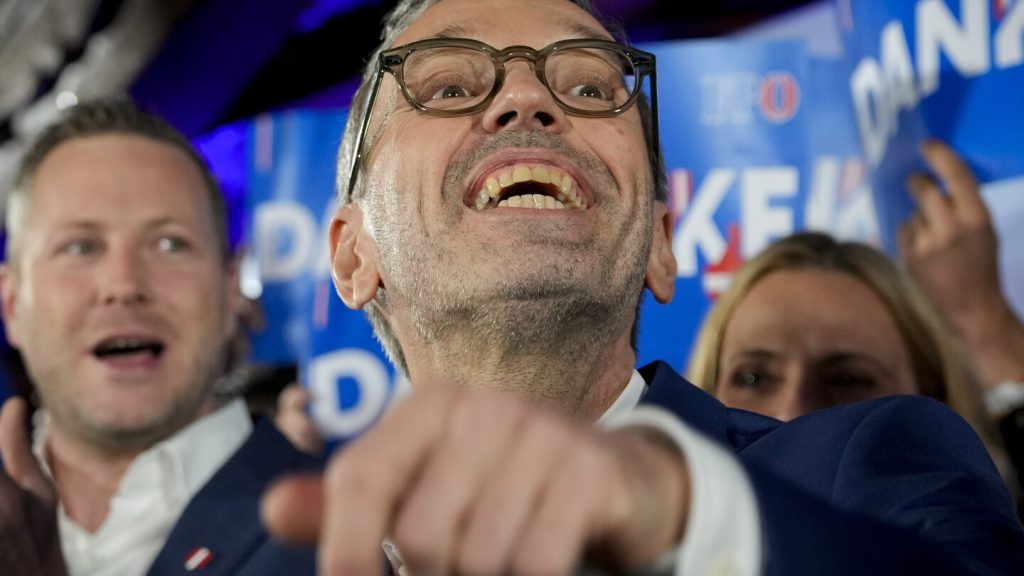The Freedom Party of Austria emerged victorious in the country’s recent national parliamentary election, marking the first far-right win since World War II. With 29.2% of the vote, the party surpassed Chancellor Karl Nehammer’s Austrian People’s Party, which came in second with 26.5%. The center-left Social Democrats landed in third place with 21%. The outgoing government, a coalition of Nehammer’s party and the Greens, lost its majority. Herbert Kickl, the leader of the Freedom Party, expressed ambitions to become the new chancellor, but would need a coalition partner to secure a parliamentary majority.
The far-right’s success can be attributed to concerns surrounding inflation, the conflict in Ukraine, and the ongoing COVID-19 pandemic. The Freedom Party’s election program, titled “Fortress Austria,” advocates for stricter border controls, the remigration of unauthorized foreigners, and the suspension of the right to asylum through emergency measures. The party also opposes sanctions on Russia, criticizes Western military aid to Ukraine, and seeks to withdraw from the European Sky Shield Initiative. Kickl has been vocal against the EU’s “elites” and calls for a return of some powers to Austria from Brussels.
While Kickl and the Freedom Party are eager to lead the government, other political rivals have expressed reluctance to work with him. Chancellor Nehammer reiterated his refusal to form a coalition with Kickl, despite acknowledging his party’s disappointment in not securing first place. The turnout for the election was significant, with over 6.3 million eligible voters participating. Kickl’s success marks a turnaround for the Freedom Party since the 2019 parliamentary election and the recent European Parliament election.
Following a scandal in 2019 that led to a drop in support for the Freedom Party, the party has rebounded with its recent election victory. The leader of the Social Democrats, a traditional governing party in Austria, positioned himself as an opposition to Kickl and ruled out any collaboration with the far right. Despite Nehammer’s efforts to portray his People’s Party as a stabilizing force in times of crisis, the government’s handling of issues such as the pandemic and the Ukraine conflict led to decreased support.
With the uncertainty of coalition formations, the People’s Party holds the key to forming a new administration. Nehammer’s rejection of Kickl as a coalition partner underscores the challenges of potential alliances. The possibility of a coalition between the People’s Party and the Social Democrats, with or without the Neos party, remains on the table. As the final official results are awaited, protests against Kickl and the Freedom Party have erupted outside the parliament building in Vienna. The outcome of the election will shape the political landscape of Austria in the coming years.


